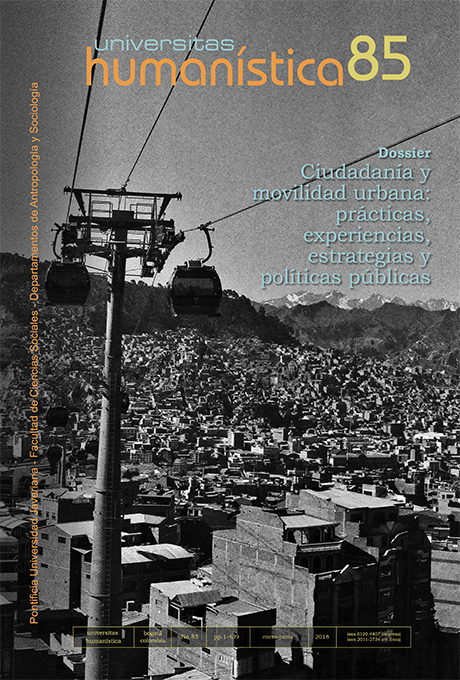Abstract
Based on the premise that the car has substantially transformed urban life, the aim of this article is to investigate the dimension of the ideas that residents of two neighborhoods in Cali (Colombia) have about their mobility and means of transportation. For this purpose, the analysis will be grounded on a Durkheim-based interpretation of social representation, understanding that this is not an autonomous dimension configured with its back turned against factual reality; rather, it interacts, structures, and is structured by social practices. Three representations will finally converge in the configuration of automotive logic in the residents of the two middle-class neighborhoods analyzed, which could be summarized as follows: the desideratum of sustainable mobility, the automobile as an efficient device, and the mystification of driving.

This journal provides immediate open access to its content on the principle that making research freely available to the public, encourages greater global exchange of knowledge.
The journal Universitas Humanística is registered under a Creative Commons Attribution 4.0 International Public License. Thus, this work may be reproduced, distributed, and publicly shared in digital format, as long as the names of the authors and Pontificia Universidad Javeriana are acknowledged. Others are allowed to quote, adapt, transform, auto-archive, republish, and create based on this material, for any purpose (even commercial ones), provided the authorship is duly acknowledged, a link to the original work is provided, and it is specified if changes have been made. Pontificia Universidad Javeriana does not hold the rights of published works and the authors are solely responsible for the contents of their works; they keep the moral, intellectual, privacy, and publicity rights.
Approving the intervention of the work (review, copy-editing, translation, layout) and the following outreach, are granted through an use license and not through an assignment of rights. This means the journal and Pontificia Universidad Javeriana cannot be held responsible for any ethical malpractice by the authors. As a consequence of the protection granted by the use license, the journal is not required to publish recantations or modify information already published, unless the errata stems from the editorial management process. Publishing contents in this journal does not generate royalties for contributors.


